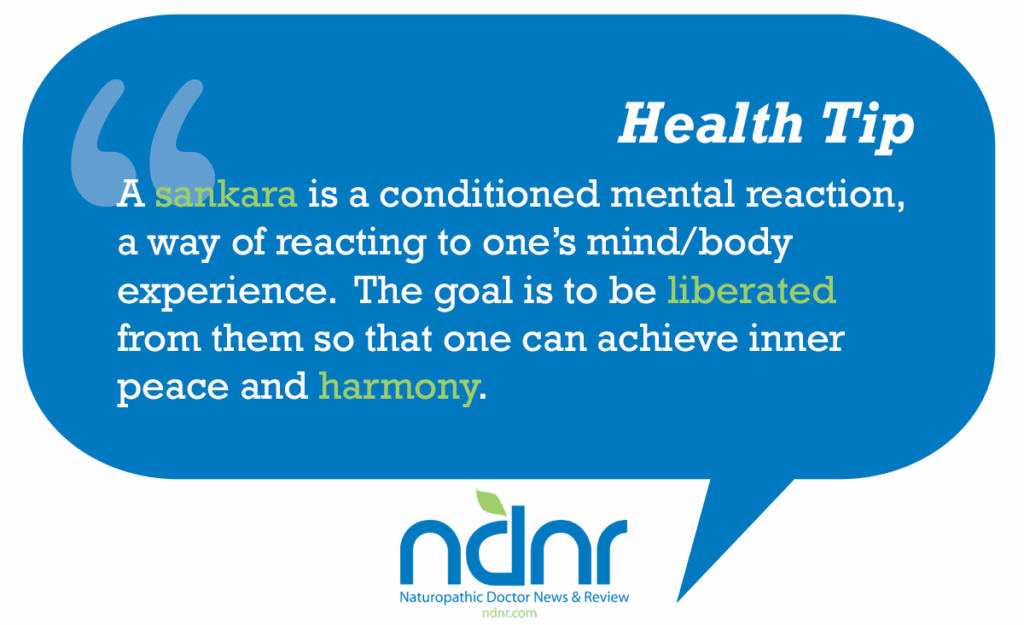Physician Heal Thyself … Why?
Adam Prinsen, ND
“Physician, heal thyself.” We hear this phrase in school, from colleagues, and even read it in books. What is so important about healing ourselves? This is something I have been reflecting on.
I was listening to one of my patients the other day when I noticed a feeling of anxiety in my chest and throat. It was vaguely uncomfortable, and my attention was drawn towards it. I was aware that this was happening, so I observed my experience/reaction and continued to listen to the patient. I also noticed that it was more difficult to listen deeply to what the patient was saying. Normally I notice details of the patient’s words and expressions as I am drawn into his or her stories and descriptions, but this uncomfortable feeling in my chest and throat was distracting me and making me less aware of the patient. I was less able to be fully present. After observing the experience for a while, it passed, and I found myself focused and present once more.
What I found interesting was how my own experience and reaction to what was happening in that moment absorbed my attention and presence. I was being pulled into my own internal experience of discomfort.
Being aware of this type of experience has helped me gain valuable information about my patients, which helps me to help them. However, when this type of experience is intense enough, it distracts me and my attention is pulled away from the patient in front of me. This is when I know that I have something that needs to be worked out and healed, that something is disturbing the receptivity of my mind. There is a reaction pattern hindering my ability to listen and thereby facilitate healing in my patient.
Sankaras and Miasms
Buddhist philosophy uses a term to describe this type of phenomenon: sankara. A sankara is a conditioned mental reaction, a way of reacting to one’s mind/body experience. We all have these patterns/sankaras that we are either born with or develop in our life from traumas or stressful situations, etc. The goal is to be liberated from them so that one can achieve inner peace and harmony. We see the expression of sankaras in our patients every day. They create illness.
Another term for these reaction patterns that most of us are familiar with is “miasm,” which can be defined as an ingrained way of reacting to one’s experience on the physical level and on the mental/emotional level. In homeopathy, the goal is to dilute the knot of sensation/reaction so the person can achieve inner peace and health. It’s basically the same in both Buddhist and homeopathic schools of thought.
When under the influence of these reaction patterns, one cannot see things as they are. One cannot see the simple truth because sankaras/miasms create delusion/illusion. One can only see oneself. We see ourselves reflected around us. It’s like looking through a pair of glasses with colored lenses. We see the world outside, but everything is altered/colored. We are not seeing things as they truly are. This is the case with all of us. We are all wearing our own pair of glasses that are colored by our life experiences and inherited miasmatic tendencies.
When we are with our patients, it is very difficult to see them for who they are without projecting our own experience onto them. If we want to see clearly we must work at clearing away our load of sankaras. This will free our mind from conditioned ways of experiencing life so that we can be open to the present moment, to what is happening right now.
Case Study
The other day a patient came to see me. When I asked her how she was doing, she immediately broke down in tears, saying “I can’t control this … I don’t know what is happening to me. I can’t control my own emotions … I feel heartbroken … I don’t know why.” She was extremely panicked, and my initial reaction also was panic: “What has happened to my patient? She’s not cured yet. Oh no, what will I do now? This looks serious.” I reminded myself to put my own reactions and feelings aside and be in the present moment so I could explore the state of this patient. She proceeded to tell me about past grief and losses and how she felt she had been holding onto these things and living in the past for so many years. She said she thinks that is why she is sick. I recognized that she had a big sankara of suppressed grief that had come to the surface.
This example shows my sankara of insecurity, which arose when the patient first came into my office. This sankara tends to make me want to fix people quickly and rescue them by being the ultimate ND. I had to remind myself to just “be” with her in her experience; that there was nothing I had to “do” but just be there with her and feel everything that was going on in me and in the room. It’s possible if the insecurity was more intense or my ability to witness it were less that it would cause me to grasp for a quick fix without listening to her or determining what the problem really was that needed assistance.
The other sankara is that of my patient. I gave her Ignatia 200 for her grief and sadness and for wanting to control it (cancer miasm).
Clearing Sankaras
The previous case study shows how homeopathy is one good method for clearing sankaras. In the case, the patient felt much better in only a few days (the beauty of the right remedy at the right time).
Another method is insight meditation. This proves to be a lot harder than simply taking a remedy, but provides one with a skill that can be used daily in naturopathic practice. If the problem is reactivity, then learning to be detached-yet-aware is the solution. By learning to feel the sensation in the body, we are in touch with our own vitality. By learning to be a detached observer we can allow ourselves to feel these currents very deeply and go wherever the patient needs to with balance and equanimity. This really helps the patient delve into areas that he or she is afraid to feel. Our own ability to navigate the seas of sensation lends the patient a sense of support and balance. They subconsciously pick up on our willingness to enter these difficult areas.
If we heal within ourselves, we become better healers. We heal through our very presence.
 Adam Prinsen, ND graduated from CCNM in 2003. He presently practices in Peterborough, Ontario. He has completed the clinical training in mind/body medicine at Harvard University and the spiritual lifestyle program at the Kripalu Center for Yoga and Health. His interests lie in connecting with the natural world, homeopathy, plant energetics, meditation and inspiring people to expand their perception of life. He has a passion for teaching and presently offers courses on mind/body medicine, whole person detoxification (body, mind, spirit), Ayurvedic medicine and naturopathic nutrition. His favorite pastime is canoeing in northern Ontario.
Adam Prinsen, ND graduated from CCNM in 2003. He presently practices in Peterborough, Ontario. He has completed the clinical training in mind/body medicine at Harvard University and the spiritual lifestyle program at the Kripalu Center for Yoga and Health. His interests lie in connecting with the natural world, homeopathy, plant energetics, meditation and inspiring people to expand their perception of life. He has a passion for teaching and presently offers courses on mind/body medicine, whole person detoxification (body, mind, spirit), Ayurvedic medicine and naturopathic nutrition. His favorite pastime is canoeing in northern Ontario.










